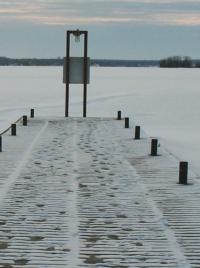|
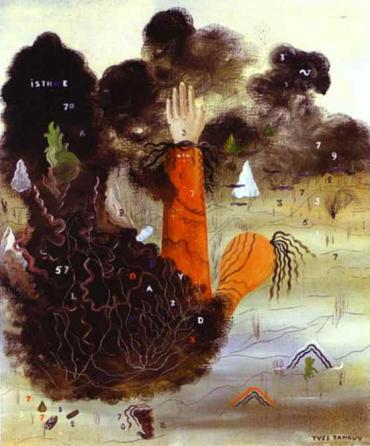
The Hand in the Clouds
1927
Yves Tanguy
d. January 15, 1955
_______________________
Oysterville Anthem
G. C. Waldrep
conjunctions
I am caught between another firmament
speak to me, xylem-bower
oh the vertical like death so majestic
suggestible/corruptible
now that everything is
a poem, unraveling—
the gorse the ferns the provisioning moss
collected as a sign water makes
when we dip into the well
*
crowded out our hearts emit pain-vesicles
that rouse us from sleep
Wachet auf
the smell of the shoal the smell
of the taste of that water
limping into the school
where the little boats are tied
in their polymer masks
...(more)
_______________________
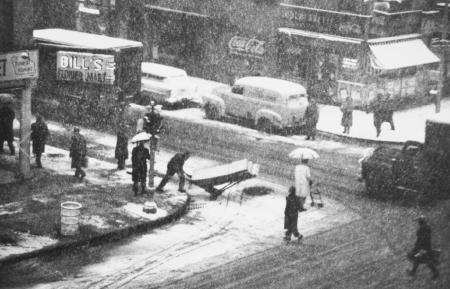 rythm of a corner
1958
The Jazz Loft Project
W. Eugene Smith
1918 - 1978
via (OVO)
_______________________
The Secret Life of Our Prostheses
Belinda Barnet
ctheory
We are born into a world of things. From masking tape to Mandarin, from computers to swaddling cloth, we enter into an existing cultural and technical system. Our sensory, cognitive, and motor faculties are put to work immediately to learn what others before us have learned: to make sense of these things, how to operate them, and our place among them. This is a long process for infants--their cognitive function is literally shaped through what is called synaptic or axon pruning (if there are any Cultural Determinists in the room, they should leave now and read some neuroscience journals). We must learn how to speak, how to use pens and toothbrushes and iPads, how to ride a bike, how to manipulate a spoon so the peas don't (or do) fall onto the floor. When we are born, we enter into something that we have not individually created but which, nevertheless, shapes our experience of the world. This is what Heidegger calls the already there, this "past that I never lived but that is nevertheless my past, without which I would never have had a past of my own." It is also what Douglas Engelbart, the inventor of the WIMP interface and the computer mouse, calls our "augmentation system."
Our augmentation system is more than just technology; it includes the whole subset of learned behaviours and physiological capabilities that allow humans to modulate and interact with our environment. It includes steering wheels and laptops--but it also includes the social structures we live within, the techniques and discourses we acquire, the "training, knowledge and skills that have to be installed as well as language, an extremely important invention." This is a giant, complicated structure that has evolved over generations. Most importantly, the elements within this augmentation system are acquired. We are not born with them; we are born into them and take them on as our own.
(....)With our prostheses in place, we are ready to face the day: reinvented, augmented, enabled by our devices. Importantly, these devices also have their own material limits, operations and requirements (like moisture, or a lack of moisture; like a secure connection between the receiver/stimulator and the magnet; like a partner to talk to) in order to carry out their own processes. Whether it is language, Cochlear Implants, contact lenses, or teaspoons, the technical artefacts that surround us shape our experience of the world from the moment we are born. These technologies have their own internal workings; they interact in meaningful and intentional ways; they exist in and of themselves. The language you speak or sign, for example; it is a gift you receive from others, but it has a life, a structure, and limits of its own. Perhaps in the future, Bogost writes, "radical philosophers will raise not their fists but their hammers."
...(more)
_______________________
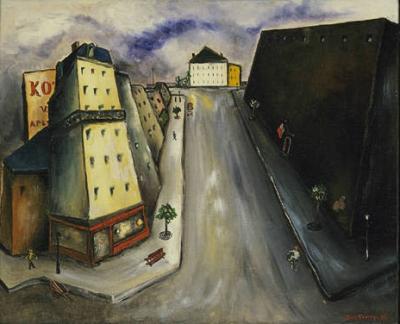
Rue de la Santé
Yves Tanguy
1925
_______________________
Where do we find ourselves?
A review of Herbrechter's "Critical Posthumanism"
John Bruni
electronic book review
(....)
... it must be asked, where does all this talk about spiritual transcendentalism leave the crucial subject of our bodies? N. Katherine Hayles cautions that privileging the disembodiment of information is a return to Cartesian dualism that supports the liberal humanist subject: what posthumanism seeks to challenge.4Cary Wolfe, moreover, reminds us that we have to take into account how posthumanism is shaped by our relationships with other embodied forms of life constituted by non-human animals.
Stefan Herbrechter examines both sides of posthumanist discourse—that is, from those, such as Minsky and Kurzweil, who see thinking machines as the primary posthuman signifier and from those, such as Hayles and Wolfe, who view posthumanism as a means of addressing what humanism has repressed, a subject that is not, perforce, shaped by human consciousness.
...(more)
_______________________

Jeno Barcsay
b. January 14, 1900
_______________________
For Milos Sovak in memoriam:
Vitezslav Nezval’s “The Heart of the Musical Clock” (1924)
a collaborative translation
Jerome Rothenberg
1
Someday to have gone that far
to slip the white glove off
your eye fixed on that one spot on the ring
reality in motion colors sounds & smells
the clock in motion too but different
but different too from science
& from buying a new tie & looking all around you
but different too from thinking hard about it
THIS IS THE HEART OF THE MUSICAL CLOCK
2
In the end the upholsterer will have to be invited
at dusk the gardener lights the lights in the asparagus
& in the rosy raspberries a caterpillar’s sleeping
DON’T HAVE NO TIME FOR WEEPING
Oh that fantastic doll in her green furs
...(more)

photo - mw
_______________________
Writing to Shakespeare
Yves Bonnefoy
translation by Hoyt Rogers.
SUPPOSING I WROTE you, Shakespeare—but why? If they should bring you my letter—whether on the stage where you speak to your actors, or on the construction site of your theatre, or at the tavern where you trenchantly discuss the events in your society that worry you, as I well know—you would stick it in your pocket, you would forget it. And besides, why should I ask you questions, or make remarks that do not interest you? It isn’t that you don’t care about what gives us pause when we read you ourselves. Still, your way of thinking about it doesn’t lie on the plane of self-aware thought, but in your highly disorganized work on your plays, in those hours when subconscious intuitions or the demands of the unconscious are no longer repressed—at any rate not as severely—by the words and convictions of the intellect.
I see you: you’re standing in a corner of the theatre. It’s cold, and a wind seems to be blowing. You’re talking to several men, young and old. One of them will be Hamlet; another, Ophelia. Do you have an idea to explain to them? No. Hamlet is being written here, at this very moment, in the sentences that come to you, that take you by surprise. It’s virtually an improvisation, over several days divided between your table—I don’t know where—and the stage: a text, certainly, but one you cross out off-the-cuff, as when you understand—for example, at this very instant—that your future Hamlet doesn’t grasp all that well what you’re trying to tell him. ...(more)
_______________________
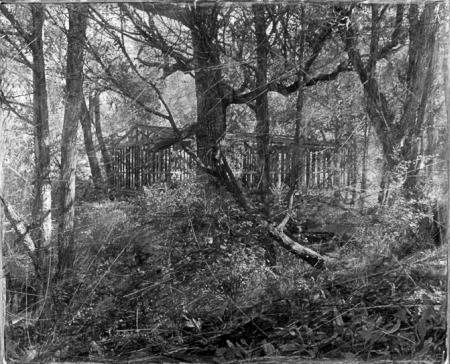 Unfinished House in the Woods
near Taos, NM, 1985-88
BW Photo Drawings 1976 - 1988
Rick Dingus
Photographic Works
_______________________
from: The Science of Forgetting
Bernadette Mayer and Dave Brinks
exquisite corpse
(....)
Eric’s Joy
none of the unsaid is given
you’ve not known its
unearthing above gnarly roots
nothing you lose can’t
be lost again outside a whiper-ish
strewn tidbit of rotting vegetable
untapped map of a black hole
those silent feet go backwards
recto a.d. recto the slimy darkness
as if that guy koresh were from iraq, youngest
brother of the rat king, dad of
lagnun’s 2nd cousins once removed
moon rat and another nin
what chance atonality don’t I hate?
aren’t zombies to be annihilated?
do shout out in random syllables
so the not-I won’t know all the rocks
are wrong for any beginning
Ode to Neap Tide
suffered from shipwreck fever
&/or the plurality of worlds
everything is to anyone
an agent to dispose of
aboard the man o’ war
neither rejoicing isles
of palm & myrrh
nor carried by sail & oar
but as profile in a flat vortex
when the sun and moon
are at right angles fleshy
edible white and yellow
their carved faces make
lanterns for the damned
who return to Bagdad
...(more)
_______________________
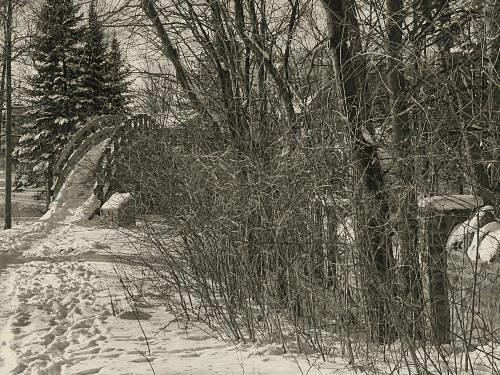
photo - mw
_______________________
The Cthulhu Cult of Capital
Anthony Paul Smith
An und für sich
(....)
Does anyone really believe THEY are worried about inflation? The current “jobless recovery”, a very soft name for a harsh reality, reveals the underlying vindictiveness of the capitalist class towards both the working class and the middle class, who inexplicably buy the austerity line. As they continue to magically make profits they refuse to redistribute that wealth along even the softest Social Democratic means and punish workers and professionals for something the capitalist class themselves caused. It’s a true anti-humanism and I finally gained some understanding of it through reading Alberto Toscano’s “Chronicles of Insurrection: Tronti, Negri, and the Subject of Antagonism” in the edited volume The Italian Difference: Between Nihilism and Biopolitics (available for free through the Open Access publisher Re.Press). In the article he discusses Mario Tronti, the virtually unknown theorist of workerism, and his description of the unilateral relation of capital to the workers. In other words, capitalism is dependent upon workers to function in real terms, but nonetheless “the political history of capital is the history of the successive attempts of the capitalist class to emancipate itself from the working class.” Capitalism, too, has it’s theory of antagonism and utopia: “capital is concerned with the dialectical use of antagonism, whose ultimate if utopian horizon is the withering away of the world class the untrammled self-valorization of capital”.
For some time now my working mythic-model for capitalism, especially through the technology of money, has been the Golem (which Hardt & Negri use in Multitude). However, if Tronti’s description of the separation of workers and capital is true, and it does seem to me to explain the current intentional attempts at a jobless recovery and destruction of any secure, non-precarious career for workers, then this myth doesn’t do it for me. Instead, capital is not a Golem, but Cthulhu and the capitalist class are his priests. It isn’t just the workers anymore, capital wants to be free from all humanity.
...(more)

Dryhope Tower from Ward Law
Walter Baxter
Geograph® Britain and Ireland
_______________________
Perfection
Tomaš Žalamun
translated from the Slovenian by Brian Henry
Leather without history. Strength without
rickets. From a drawer. On the hand a wire. Blood
is silk. Walk silently. Blood is like
fruit. Here too is heated.
Shah’s tanks are entrenched. First we thrashed
ourselves. We roared and got excited.
Mirrors have to function as ovens. You see them
from the road. On the machines producing
dreams. Some read between. The perfect
form springs up like an ear. I know
a chiropractor who can pull out your arm.
Five centimeters out of your shoulder.
Joints crunch. No need for oil. You spin
as you please. You leave when the tool falls asleep.
Tomaš Žalamun at Poetry International and Blackbird
_______________________
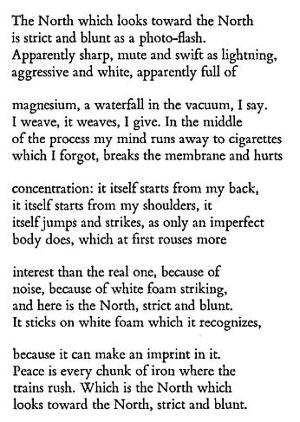
The North
Tomaš Žalamun
1941 - 2014
(Tr. with Anselm Hollo)
_______________________

long distance footpath near Darnick
Walter Baxter
_______________________
Two paths
Richard Parker
Poetry Wales
(....)
I needn’t state the path I trod,
Or my head thick and buzzing against the molten gale,
That one might fall out of life and into the autonomous.
Blackness and blackness
...(more)
_______________________
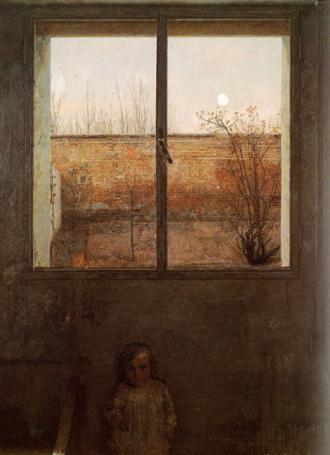
Antonio Lopez Garcia
_______________________
Political ecology, as we have now understood it, is not defined by taking account of nature, but by the different career now taken by all objects.
To modernize or to ecologize? That’s the
question [pdf]
Bruno Latour
...to summarise this argument, it would have to be said that ecology has
nothing to do with taking account of nature, its own interests or goals, but that it is
rather another way of considering everything. ‘Ecologising’ a question, an object or
datum, does not mean putting it back into context and giving it an ecosystem. It
means setting it in opposition, term for term, to another activity, pursued for three
centuries and which is known, for want of a better term, as ‘modernisation.’.
Everywhere we have ‘modernised’ we must now ‘ecologise.’ This slogan obviously
remains ambiguous and even false, if we think of ecology as a complete system of
relationships, as if it were only a matter of taking everything into account. But it
becomes profoundly apposite if we use the term ecology by applying to it the
principle of selection defined above and by referring it to the Kantian principle for
the justification of the green regime.
‘Ecologising’ means creating the procedures that make it possible to follow a
network of quasi-objects whose relations of subordination remain uncertain and
which thus require a new form of political activity adapted to following them. ...(more)
via Synthetic_zero
_______________________
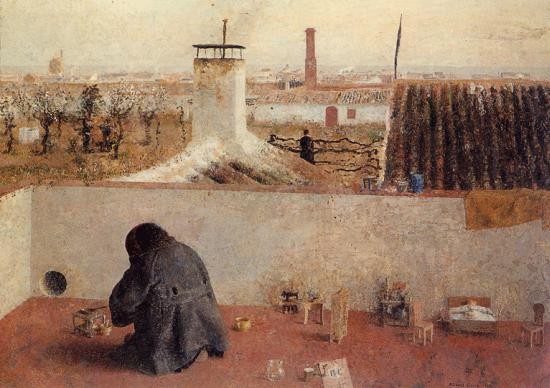
Antonio Lopez Garcia _______________________
Everything’s Coming Together While Everything Falls Apart
The Climate for 2015
Rebecca Solnit
(....)
So many people don’t understand what we’re up against, because they don’t think about the Earth and its systems much or they don’t grasp the delicate, intricate reciprocities and counterbalances that keep it all running as well as it has since the last ice age ended and an abundant, calm planet emerged. For most of us, none of that is real or vivid or visceral or even visible.
For a great many scientists whose fields have something to do with climate, it is. In many cases they’re scared, as well as sad and unnerved, and they’re clear about the urgency of taking action to limit how disastrously climate change impacts our species and the systems we depend upon.
Some non-scientists already assume that it’s too late to do anything, which -- as premature despair always does -- excuses us for doing nothing. Insiders, however, are generally convinced that what we do now matters tremendously, because the difference between the best- and worst-case scenarios is vast, and the future is not yet written.
...(more)
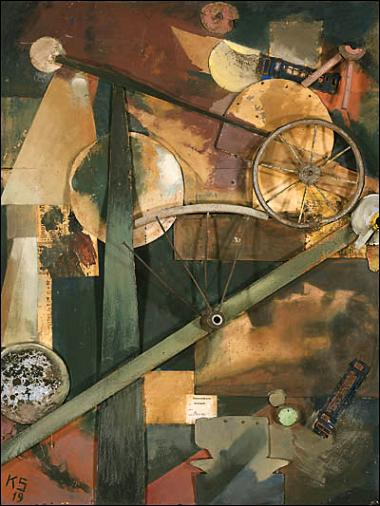
Construction for Noble Ladies
1919
Kurt Schwitters
d. January 8, 1948
_______________________
We must walk this territory where technology meets epistemology, psychopathology meets poetry, and neurobiology meets cultural evolution.
The Neuroplastic Dilemma: Consciousness and Evolution
Franco Berardi Bifo e-flux
The history of the last fifty years can be read from the point of view of the relation between subjectivity and automation, the replacement of a living process by a technological artifact whose performances replicate the logical and functional succession of human acts. In the history of capitalism, this replacement has a double goal: increasing workers’ productivity and subduing the political force of organized workers.
In the last decades of the century, the digital network became the engine of the increase in productivity in every branch of social production. The worldwide movement of students that culminated in the year 1968 can be viewed as the moment of anticipation and early emergence of this new social potency: students are the living embodiment of the general intellect, and the antiauthoritarian movements were the beginning of a long-lasting conflict between cognitive workers and capital.
The process of automation has not only replaced the physical acts of production: following the introduction of information technology, automation has massively transformed cognitive activity itself. The capture and subsumption of cognitive activity is the basic condition of semiocapital, which is based on the valorization and accumulation of signs (semia) as economic assets. In order to capture cognitive activity (attention, memory, language, imagination), semiocapital must insert automatic procedures into the field of cognition itself. Therefore, automation is not only the effect of the cognitive action that leads to the change of work organization; it also implies the reduction of cognitive activity to algorithmic procedures, and the insertion of automatisms into the social existence of the general intellect.
This process poses a major threat to the autonomy of subjectivation: language, memory, and imagination are more and more performed by machines, and the human learning process is more and more pervaded by the automated process of enunciation.
...(more)
e-flux # 60
_______________________

Serge Poliakoff
b. January 8, 1900
_______________________
Public Eyes
The internet has changed how we look at photos. Can it also help us reimagine the history of photography?
James Polchin reviews Public Eye: 175 Years of Sharing Photography at the New York Public Library
the smart set
(....)
What you notice in the historical movements of this show is how much the act of photographing has turned from public vision to private realities. Early works here rest often on travels. The 19th century French archeologist Désiré Charnay photographed ancient ruins in Mexico and the Yucatan. Maxime du Champ’s stark images of ruined temples and building facades from his many trips to Egypt, Palestine and Syria, shimmer in their distance and realism. Near these images sit American photographer Carleton Watkin’s expansive views of Yosemite in the 1860s. And just a few photographs from these we encounter two iconic 20th century images of Bernd and Hilla Becher’s German industrial silos from 1968, looking stoic and solemn. It is unclear how the Becher’s industrial countryside fit into the street views. This confusion underscores the shows frenetic movement across geographies and time periods. While the organization is clearly a walk through time with each section of the show, there is an unacknowledged history of interests and intents by the photographers here — an intent that defines what and how we are asked to see the world they present us.
...(more)
_______________________
Onomasticon
Mircea Horia Simionescu
Translated from Romanian by Sean Cotter
words without borders
(....)
ACHIM As a child, he suffered from the disease called humility. Poor man! Now, as a consequence of that awful disease, he acts like a tyrant toward waifs and dreamers, holding forth (to the young) in long speeches about life’s hidden dangers.
ACULINA Likeable girl under a foreign roof. Her masters (or relations) dress her cheaply and smack her at a hasty word. She is married off, one afternoon, to a brutal drunk. After he dies, she remarries with a corporal on leave, who has a country inheritance. She maintains the corporal’s house, and in the course of a fire, she burns like a torch, making the neighborhood tremble with her screams of martyrdom.
Her religious soul comes back to the kitchen at evening to scrub the pots and boil mast for the pigs.
BLANCHE Many imagine Blanche to be blonde. But most are brunette, hairy, petite, smokers, with guilty twinges and violently accusing gestures.
BLIMA Before leaving the country for good, Blima, misunderstanding the price of furniture, picks up an ax and destroys, in front of the buyer, first her Louis XV dining set and then the bedroom.
CORIN A feverous person, precocious. His hours melt into a dizzying rush. He lives as much in one year as others do in ten. He left us further and further behind, until he lived in the next century. Alone, without contemporaries.
...(more)
_______________________
Alternate Pasts: International Uchronia
Words without Borders January 2015
... an issue dedicated to divergent histories and uchronias. The stories in this issue present historical events with a twist, asking what if? Sweden’s Karin Tidbeck posts an otherworldly explanation for a town’s disappearance and France’s Xavier Mauméjean wonders how a matinee idol’s accident might have changed the face of international cinema. Mexican writer Bef describes a confrontation between Emperor Maximilian I and the digital ghost of Benito Juárez while Argentine Hernán Vanoli delves into the world of a female soccer gang protecting the reanimated cyborg of Lionel Messi. Gerson Lodi-Ribeiro pictures Portugal’s King Dom Luís II’s escape to Brazil while Aldo Nove tells the peculiar life story of St. Francis of Assisi from the perspective of his nephew Piccardo. From Chile, Jorge Baradit explores what might have happened if Allende had thwarted the coup attempt of 1973, and Peruvian Jorge Eduardo Benavides describes an allohistorical Peru in which Shining Path defeated the armed forces.
_______________________
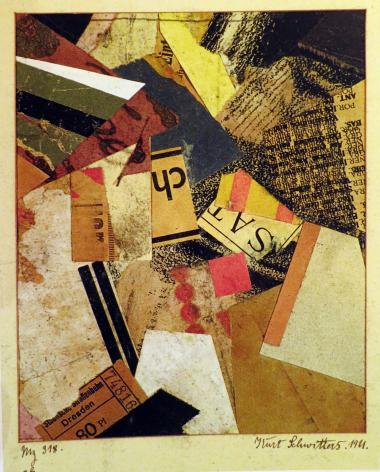
MZ 318 CH
Kurt Schwitters
1921
_______________________
The New Modesty in Literary Criticism
Jeffrey J. Williams
... in the past decade, we’ve seen a new modesty. Literary critics have become more subdued, adopting methods with less grand speculation, more empirical study, and more use of statistics or other data. They aim to read, describe, and mine data rather than make "interventions" of world-historical importance. Their methods include "surface reading," "thin description," "the new formalism," "book history," "distant reading," "the new sociology." At times it seems as if each year brings the next new thing, but those methods add up to more than that. Together they augur a change in the basic assumptions of literary studies. - See more at: http://m.chronicle.com/article/article-content/150993/#sthash.NutLkXny.dpuf
(....)
In part, the shift represents a generational turnover, and dispensing with some of the overblown assertions of literary theory is refreshing. But it also seems to express the shrunken expectations of academe, particularly of the humanities, and a decline in the social prestige of literary criticism.
...(more)
_______________________
'I've Got Nothing to Hide' and Other Misunderstandings of Privacy
Daniel J. Solove
Social Science Research Network
Top 10 Papers of 2014
_______________________
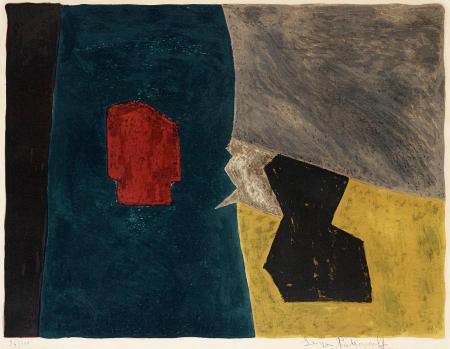
Serge Poliakoff
_______________________
Nietzsche and the Burbs
*
There’s not long left.
Do not hope and do not dream. Do not think you will wriggle free. There’s no hope. No promise. The horizon is sealed off. The future’s cancelled.
The only thing – to volatilise hopelessness. To set despair on fire. To raise the flag of desperation. To flare your nothingness into the night.
*
We’re throwbacks. Leftovers. The solution has been found. It’s being implemented. It’s just not a solution for us, that’s all…
We’re anomalies. We’re antinomian. They’ve solved every important problem – every significant problem. But what about our problems? What of the problems that we are?
*
The suburban absolute. The suburban, This is it, and do not think it can be otherwise.
...(more)
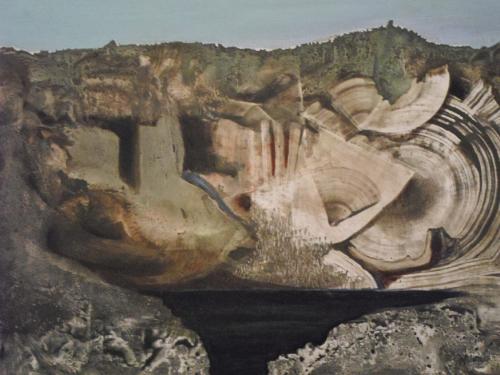
Delphi
Oscar Dominguez
b. January 7, 1906
_______________________
A fierce intellectual pacifism
Riding's 'Contemporaries and Snobs'
Leah Souffrant
(....)
Riding is unabashedly complicated in her own critique. One of the first things the reader of Contemporaries and Snobs may notice is Riding’s own intelligence, which is learned, vast, and sharp. Often deeply tongue-in-cheek, her saucy tone, meandering through the “shoulds” of critics only to then upend them as bombastic nonsense, is both playful and earnest at once. She is a critic bewailing criticism, a poet crying out for poetry, the smartest woman in the room rolling her eyes at all of us knowingly. One might forget that the book was written nearly a century ago.
The reader already familiar with Riding’s Anarchism Is Not Enough, which was reprinted in 2001, may wish to go deeper into Riding’s critique of T. S. Eliot and the modernist project in general, and its relation to history, literary and otherwise. But one will not come out of the reading of Contemporaries and Snobs with a eureka moment of clarity, announcing, “So this is where I grip the slippery mind of Laura Riding!” The wily Riding remains elusive, and yet with increasing clarity her intellectual project is illumined. This unknowable of poetry is its most essential quality.
...(more)
_______________________

Landscape at Kyleakin
Anne Redpath
1895 - 1965
_______________________
world versus america: ballard and the global asylum
Stephen Barber
3am
(....)
To condense the projection of reality to an obsessional or psychotic core always resonates with the art works and textual writings of the insane. Condensation generates an intensity and an immediacy which concurrently negate the banal and superfluous; as such, that process will also pivot at the boundary with hallucination or incoherence (like the Surrealist poetry which Ballard admired), but also instils itself with grandiosity, myth and velocity. When Ballard retrospectively assigned the dedication of The Atrocity Exhibition to ‘the insane’, for the book’s 1984 RE/Search edition, he also intimated his own direction as a writer in the book’s era, heading into a salutary proximity to psychotic zones (and their imageries), but stopping a moment before immersal and engulfment. All ‘insane’ writing and visual art is poised at that volatile precipice (otherwise, insane writers and artists would transmit only silences, voids or screams) and indicates the mutability of definitions of insanity.
(....)
In his emphasis on the perceived 'tremendous gain in the density of ideas and images' to be extracted from his work on condensed fictions, Ballard evokes the contradictory proliferations that result from reduction and elimination. Much of the Surrealist art which attracted Ballard, especially the work of Max Ernst (such as The Robing of the Bride, 1940, and other works whose titles are incorporated into The Atrocity Exhibition), possesses a dynamic of infinite proliferation, in which all space on the canvas must be excessively filled, to its maximum density. But in order to achieve that spatial excess and heighten the 'dense' mystery of figures such as those of Ernst, all conceptions of the coherent depiction of space and time must be jettisoned; Surrealist film, too, notably with Buñuel and Dalí's Un Chien Andalou (1929) occupies its own duration through the projection of ellipses, erasures and vanishings, often those marked with violence, upon the eye or body. Across The Atrocity Exhibition and Surrealist film, the fragments which remain from a process of violent elimination are saturated with a concentrational amalgam of image and text, with a distinctive ocular dynamic.
...(more)
_______________________
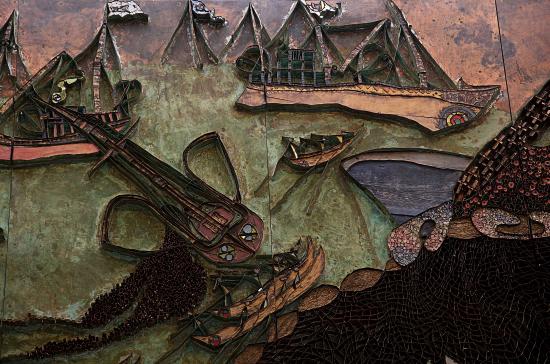
Herring Fishing
1965
detail
Rolf Nesch
b. January 7, 1893
_______________________
from "Fallowfield" [pdf]
Phil Hall
(....)
*
Last night in my dream I climbed the bare Tree of Language
from its top I could see we were on an island
Oak Leaf Island
we had been abandoned there by our politicians
they didn’t want to
be public servants any more
they didn’t want us to
care about lop
or weed
the island was strewn with garden words
I saw how our job now
was to climb down & gather those hand-written words & put them back on the tree
for years we worked at this together
old verbs & nouns were blathering
at new maroon twig-ends again
then one day we felt the island move
the Tree of Language was revealed as the mast of a ship
we its riggers
its rigours our words bellying forth as one crazy-quilt map sail *
in The Small Nouns Crying Faith by Phil Hall
Selecting Phil Hall
Rob Mclennan jacket2
(....)
Unlike poets such as Al Purdy or George Bowering, Phil Hall’s work makes it impossible to excise any obvious series or sequence of “greatest hits”—ie: poems that readers already know and love re-packaged for the general reader out of his numerous books and chapbooks; instead, what becomes compelling about Hall’s work is in just how many permutations of this volume might have been possible, as well as the remarkable durability of his writing. He writes on influences, literary and otherwise; he writes of rural Ontario, and such terrible violence even -as he processes such; he stitches together lines and tall tales and fables from his life and the stories that float around the ethos of his variety of Ontario wilds. Hall’s isn’t a poetry carved into perfect diamond form, but a poetry whittled from scores of found material to be pulled apart and rearranged.
(....)
Phil Hall has long been a poet of deep attention, compiling and collecting lines and phrases into an accumulation that speak of artifacts and smallness, and a humanity rarely lived and articulated so well in Canadian poetry. His is a folk-art, sketching out a collage of lines, phrases and lost sentences. Stan Dragland, in his new collection of essays, The Bricoleur and his Sentences (Pedlar, 2014), refers to Hall as “the bricoleur’s bricoleur,” for creating his works out of the strands and shards of what is available. Hall won the Governor General’s Award for Poetry and the Trillium Award, as well as being shortlisted for the Griffin Prize, for Killdeer (BookThug, 2011), a collection of self-described “essay-poems,” published as part of BookThug’s “Department of Critical Thought.” Hall’s early works included elements of work poetry, but he has morphed into a folk-poet, composing what have evolved into “essay-poems.” He practices a folk-local, examining the small, local and deeply specific, composing striking lines and phrases that accumulate into individual pieces, as well as sections of a far-broader canvas. Hall’s poems have the durability and devastation of koans. ...(more)
_______________________
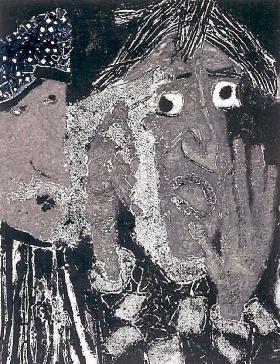
Come in!
Rolf Nesch
1949

photo - mw
_______________________
Doxemic Intensities: Robert Duncan’s H.D. Book
Peter O'Leary
The Cultural Society
At the core of Robert Duncan’s poetry is myth. He likely had a more complex and nuanced understanding of myth than any other American poet of the twentieth century. For Duncan, myth and poetry are the snakes entwined around Hermes’ caduceus, whose flowering rod bursting forth into wings H.D. waved like a sorcerer’s virga in the third volume of her epic serial poem Trilogy. In The H.D. Book, Duncan writes, “When the third volume of the Trilogy, The Flowering of the Rod, was published in 1946 I had found my book.” Out of that finding erupted his own work, The H.D. Book, Duncan’s ars poetica, never assembled until now, a book of mythos, logos, poetry, modernism (especially H.D.’s and Pound’s modernism), literary initiation, esotericism, and non-conformism. Its precedents are not so much the writings of his contemporary New American poets, such as Charles Olson or Robert Creeley (even as he took important ideas from them), nor the diatribes and correspondences of the modernists from whom he so clearly derived his art, such as Pound, Williams, Eliot, and H.D. The H.D. Book is most like Robert Graves’ The White Goddess, with which it shares some mythic convictions and anthropological and psychological methods; Emerson’s essays, especially in its discursiveness, circuitousness, and referentiality; and perhaps most of all Coleridge’s Biographia Literaria, in that like Coleridge Duncan uses poetry and his life story as a means for understanding literature and the world.
The long-awaited publication of The H.D. Book makes the time right to assert the worth of Duncan’s claims about poetry, myth, and religion, particularly in the face of the dissipations and barbarisms of what passes for thought among contemporary poets, a thin draught in comparison to Duncan’s rich brew. For Duncan, myth is enactment: of narrative, of speech, of ritual, of the cosmos writ large. “Mythos and drômenon, gospel and rite, are events first of poetry” (HD 533). Poetry makes the cosmos legible: “Yet our roots are in the sky. Radical! The Milky Way appears, cross-section of our galaxy. In the earliest news out of heaven, what they said—the mythos—was that it was the slain body of the dragon, it was the flow of everlasting mothering milk, it was light, it was rhetoric, river, fluid. A stream of suns” (HD 205). It was light, it was rhetoric: that’s the universe for Duncan – light and language.
...(more)
via the page
_______________________

Gustave Doré
b. January 6, 1832
_______________________
Ontological Politics, Ecology, and the Anthropo(s)cene [pdf]
Adrian Ivakhiv
Ontology is in; epistemology is out. The question is no longer how we know what we know, but
what is: what are the fundamental constituents of the universe, what is their nature, how do they
relate and differ, and so on. Ontology, furthermore, is political. Or so a certain glean of the
intellectual and philosophical landscape might suggest. Ontology has become an issue (again)
among philosophers, anthropologists, sociologists, geographers, science and technology scholars,
and others, in a way that it has not been for perhaps a century.
This paper arises from an entanglement of conversations in ecologically informed
philosophy. Most specifically, it emerged from debates within the movement of “speculative
realism” around the subspecies of that genre known as Object-Oriented Ontology (“OOO”) and
its defense of an ontology of objects rather than processes. More broadly, the paper attends to
conversations in the “ontopolitical” milieu of contemporary social, cultural, and environmental
theory, a milieu in which posthumanism, critical animal studies, actor-network theory,
assemblage theory, critical realism, agential realism, nonrepresentational theory, enactive and
embodied cognitivism, post-phenomenology, multispecies ethnography, integral ecology, and
various forms of “new materialism,” “geophilosophy,” and “cosmopolitics” fashion themselves
as intellectual responses to the predicament indicated by such terms as the ecocrisis, the climate
crisis, and the Anthropocene.
(....)
This article proposes an evocation of what a
“process-relational” ontology entails at its phenomenological and hermeneutic outset: a
beginning from matters of concern, yet a beginning that allows a reaching outward to others who
are similarly bound up—openly and not deterministically—within their own matters of concern. ...(more)
via Synthetic_zero
_______________________
The Cudgel Argument
R. Scott Bakker
Three Pound Brain
(....)
We have always been obdurate unto ourselves, a brick wall splashed with colour, checkered with different textures of brick, but a brick wall all the same. Everything from Husserl to Plato to the Egyptian Book of the Dead is nothing more than incantatory graffiti. All of them chase those terms we use as simpletons, those terms that make complete sense until someone asks us to explain, and we are stumped, rendered morons—until, that is, inspiration renders us more idiotic still. They forget that Language is also Real, that it functions, not by vanishing, but being what it is. As Real, Language must contend—as all Real things must contend—with Reality, as a system that locks into various systems in various ways—as something effective. Some particles of language lock into environmental particles; some terms can be sticky-noted to particular covariants. Some particles of language, however, lock into environmental systems. Since the Reality of cognition is occluded in the cognition of Reality, these systems escape immediate cognition, leaving only the intuition of impossible–because not quite Real–particles.
Such as Ideas.
...(more)
_______________________
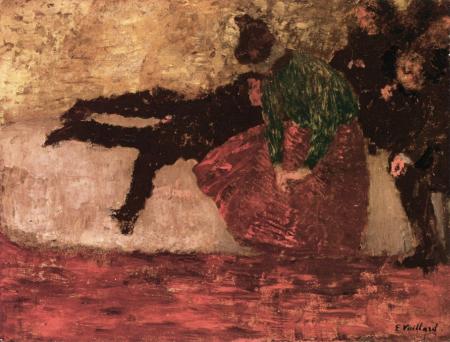 After the Ball
Edouard Vuillard
_______________________
Our Words, Our Selves
Is our language broken and suddenly in need of repair?
E. Ethelbert Miller
(....)
There comes a day when language asks for the car keys. There comes a time when we find ourselves a witness to an accident. Is that time now? Is our language broken and suddenly in need of repair? I’m not a linguist, or even a person who speaks a second language. I’m a poet who once wrote, “The ear is an organ made for love.” This was an outgrowth of listening to the changing “tenor” coming from the voices of people on sidewalks, buses and trains. What would Walt Whitman hear if taking a walk these days? Would he hear America singing? Would our language be filled with hope or would every conversation and song be one of despair?
It’s interesting how certain words are now used in the news media. What’s an editor to do? Like the free market, it seems we want our ears to always be open. Yet, at what point do we become concerned with our moral imagination? When do we try to restrict the use of racist and sexist terms? And what about profanity? What happens when the language of protest is needed to remove the language of oppression? If we live in violent times, is it possible or even desirable to have passive thought and speech? Must we overthrow language, too?
...(more)
 Jomala, Finland
Pentti Sammallahti
1 2 3 4 5
_______________________
Winter’s Philosophers
Charles Simic
(....)
“No philosopher has ever influenced the attitudes of even the street he lived on,” Voltaire was reputed to have said. That’s not what I believe. With deep winter upon us and the weather growing colder, even the wood smoke out of the neighbors’ chimneys could be described as philosophizing. I can see it move its lips as it rises, telling the indifferent sky about our loneliness, the torment of our minds and passions which we keep secret from each other, and the wonder and pain of our mortality and of our eventual vanishing from this earth. It’s a kind of deep, cathedral-like quiet that precedes a snowfall. One looks with amazement at the bare trees, the gray daylight making its slow retreat across the bare fields, and inevitably recalls that Emily Dickinson poem in which she speaks of just such a winter afternoon—windless and cold, when an otherworldly light falls and shadows hold their breath—and of the hurt that it gives us for which we can find no scar, only a closer peek inside ourselves where the meanings and all the unanswered questions are.
...(more)
_______________________
The Poem that Took the Place of a Mountain
Wallace Stevens
There it was, word for word,
The poem that took the place of a mountain.
He breathed its oxygen,
Even when the book lay turned in the dust of his table.
It reminded him how he had needed
A place to go to in his own direction,
How he had recomposed the pines,
Shifted the rocks and picked his way among clouds,
For the outlook that would be right,
Where he would be complete in an unexplained completion:
The exact rock where his inexactnesses
Would discover, at last, the view toward which they had edged,
Where he could lie and, gazing down at the sea,
Recognize his unique and solitary home.
.....................................................
There it was (PoemTalk #83)
Wallace Stevens, 'The Poem That Took the Place of a Mountain'
_______________________

photo - mw
_______________________
I shall not be alone, in the beginning. I am of course alone. Alone. That is soon said. Things have to be soon said. And how can one be sure, in such darkness? I shall have company. In the beginning. A few puppets. Then I’ll scatter them, to the winds, if I can. And things, what is the correct attitude to adopt towards things? And, to begin with, are they necessary? What a question. But I have few illusions, things are to be expected. The best is not to decide anything, in this connexion, in advance. If a thing turns up, for some reason or another, take it into consideration. Where there are people, it is said, there are things. Does this mean that when you admit the former you must also admit the latter? Time will tell. The thing to avoid, I don’t know why, is the spirit of system. People with things, people without things, things without people, what does it matter, I flatter myself it will not take me long to scatter them, whenever I choose, to the winds. I don’t see how. The best would be not to begin. But I have to begin. That is to say I have to go on. Perhaps in the end I shall smother in a throng. Incessant comings and goings, the crush and bustle of a bargain sale. No, no danger. Of that.
Samuel Beckett, from The Unnamable
_______________________
Rilke’s Tombs of the Hetaerae
posted at -synthetic_zero
(....)
And so they lie, filled to the brim with Things,
expensive Things, jewels, toys, utensils,
broken trinkets (how much fell into them!)
and they darken as a river’s bottom darkens.
For they were riverbeds once,
and over them in brief, impetuous waves
(each wanting to prolong itself, forever)
the bodies of countless adolescents surged;
and in them roared the currents of grown men.
And sometimes boys would burst forth from the mountains
of childhood, would descend in timid streams
and play with what they found on the river’s bottom,
until the steep slope gripped their consciousness:
...(more)
_______________________
on what there is for things to be
Stephan Kraemer interviewed by Richard Marshall
3am
Stephan Kraemer is the new guy on the Phlox-block making waves as he cuts to the metaphysical chase investigating what there is. Consequently he’s always thinking about grounding, about what philosophers mean by the term, about ontological cheating, about Kit Fine’s self grounding puzzle, about Bolzano’s intransparency thesis and what he got right and what he got wrong, about Quine’s thesis of ontological collapse and why it fails, about why metaphysics answers some ontological questions better than science, about the analytic tradition in Germany and not being able to get clear about what Derrida and his followers claim. Like a cold pint of Doom Bar bitter downed as a last chance, this one’s fundamental…
_______________________

Finström, Finland
Pentti Sammallahti
_______________________
Wittgenstein did not argue; he merely thought himself into subtler and deeper problems The record which three of his students have made of his lectures and conversations at Cambridge discloses a man tragically honest and wonderfully, astoundingly absurd. In every memoir of him we meet a man we are hungry to know more about, for even if his every sentence remains opaque to us, it is clear that the archaic transparency of his thought is like nothing that philosophy has seen for thousands of years. It is also clear that he was trying to be wise and to make others wise. He lived in the world, and for the world. He came to believe that a normal, honest human being could not be a professor. It is the academy that gave him his reputation of impenetrable abstruseness; never has a man deserved a reputation less. Disciples who came to him expecting to find a man of incredibly deep learning found a man who saw mankind held together by suffering alone, and he invariably advised them to be as kind as possible to others. He read, like all inquisitive men, to multiply his experiences. He read Tolstoy (always getting bogged down) and the Gospels and bales of detective stories. He shook his head over Freud. When he died, he was reading Black Beauty. His last words were: "Tell them I've had a wonderful life."
— Guy Davenport, The Geography of the Imagination: Forty Essays
|
